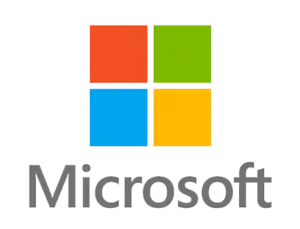
Voice over Internet Protocol (VoIP) has become an increasingly popular alternative to traditional telephone systems. With its ability to provide cost-effective and reliable communication, VoIP has become a go-to option for businesses and individuals alike.
However, before adopting VoIP technology, it is important to understand its advantages and disadvantages. This article aims to provide a comprehensive guide to help you understand VoIP technology and make an informed decision.
What is VoIP?
Voice over Internet Protocol (VoIP) is a technology that allows you to make calls over the internet. It converts analogue voice calls into digital data that is sent over the internet in the form of data packets.
Advantages of VoIP
Cost-Effective
One of the biggest advantages of VoIP is its cost-effectiveness. As compared to traditional telephone systems, VoIP requires less investment in hardware and maintenance, which results in reduced costs for businesses. Additionally, with VoIP, users can make calls and send messages over the internet, eliminating the need for long-distance charges.
Improved Call Quality
VoIP technology offers improved call quality as compared to traditional telephone systems. Originally this was not the case but as high speed, reliable internet has become widely available VoIP now has the ability to offer quality that far exceeds traditional lines.
With its ability to transmit voice data over the internet, VoIP provides clear and uninterrupted communication. Furthermore, VoIP also offers advanced features like call waiting, call forwarding, and voicemail, improving the overall call experience.
Better Mobility
Another advantage of VoIP technology is its increased mobility. With VoIP, users can make and receive calls from anywhere with a stable internet connection. This makes it ideal for businesses with remote employees or individuals who frequently travel.
Integration
VoIP technology can be easily integrated with other tools, such as video conferencing, instant messaging, and file sharing. This allows businesses to communicate effectively and efficiently, resulting in improved collaboration and productivity.
Disadvantages of VoIP
Requires an Internet Connection
VoIP technology is dependent on a stable internet connection, which can be a drawback in areas with weak or unreliable internet connections. In such cases, calls may drop or have poor quality, making it difficult to communicate effectively.
Cybersecurity
Another disadvantage of VoIP is security concerns. As VoIP data is transmitted over the internet, it is vulnerable to cyber threats like hacking and malware attacks. To ensure secure communication, it is important to implement proper security measures and keep your VoIP system updated.
Limited Emergency Services
In case of an emergency, VoIP technology may not provide the same level of support as traditional telephone systems. For example, in case of a power outage, VoIP systems may not work, making it difficult to contact emergency services.
Additionally, as VoIP numbers are portable they do not have your location associated with then by default. This means that in the event of a ‘silent emergency call’ operators will not be able to get your address. There are however workarounds that can be implemented, so speak to your provider if this is a worry for you.
Technical Difficulties
VoIP technology may also encounter technical difficulties, such as software bugs, compatibility issues, and hardware failures. In such cases, troubleshooting can be time-consuming and challenging, making it difficult to maintain an effective communication system.
This is why it is important you choose your VoIP provider carefully. Make sure to choose a provider that has proved record of brilliant customer service and support. To learn more about choosing the right provider read 7 expert tips for choosing the best VoIP service for your SMB.
Conclusion
In conclusion, VoIP technology offers several advantages, such as cost-effectiveness, improved call quality, increased mobility, and integration with other tools.
However, it also has its disadvantages, such as dependency on internet connection, security concerns, limited emergency services, and technical difficulties.
When deciding to adopt VoIP technology, it is important to carefully weigh its pros and cons and consider your specific needs and requirements. With the right implementation and maintenance, VoIP can be a valuable investment for businesses and individuals looking to enhance their communication systems.
One other important thing to keep in mind is that from December 2025 PSTN services will be discontinued in the UK. Which means you will need to switch to alternative phone systems to stay connected.






